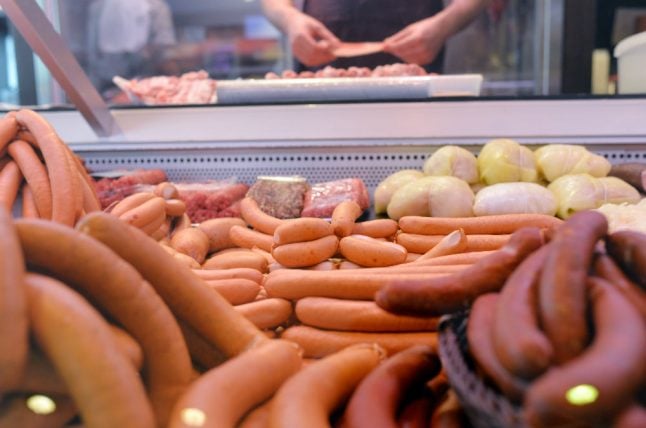Following slight increases in recent years, in 2017, meat production in German slaughterhouses notably dropped by a 'significant' two percent compared to the previous year, reported the Federal Statistical Office (Destatis) on Wednesday.
Last year a total of 8.11 million tonnes of meat were produced, whereas 2016, which was a record year, saw production of 8.28 million tonnes.
The latest Destatis figures also show that similar to in the past, pork is the top meat product consumed by Germans. Still, last year saw a drop in pork production as well as in beef, poultry and duck.
SEE ALSO: German's eight wurst sausage-related idioms
Meanwhile Germans – who are known the world over for being meat-lovers – are also increasingly eating less totes Tier, according to the “Fleischatlas” report which was published in January. In 2016, they consumed 59 kilograms per person – down from 60,6 kilograms per person the previous year.
The consumption of meat among Germans has steadily been declining since 2011, the report states, with the sharpest drop between 2015 and 2016.
But according to the Fleischatlas, which is a joint project carried out by the Heinrich Böll Foundation, the German Federation for the Environment and Nature Conservation and newspaper Le Monde Diplomatique, meat consumption in Deutschland is still too high. The project organizers have been calling on Germans to significantly reduce their meat consumption and reduction in livestock numbers.
The German Society for Nutrition recommends a maximum of half the current amount – about 30 kilograms of meat per person per year, reported Frankfurter Allgemeine Zeitung (FAZ).
The decline in the production and consumption of meat is reflected in the recent trend for meat-free Christmas markets across the Bundesrepublik.
During the last Christmas season, there were 15 vegan Christmas markets throughout the country – an increase from only ten last year, according to ProVeg, an association for vegetarians in Germany.
“This is definitely a trend and will grow more and more every year,” said Wiebke Unger, a spokesperson for ProVeg.
READ ALSO: The growing German trend for meat-free Christmas markets



 Please whitelist us to continue reading.
Please whitelist us to continue reading.